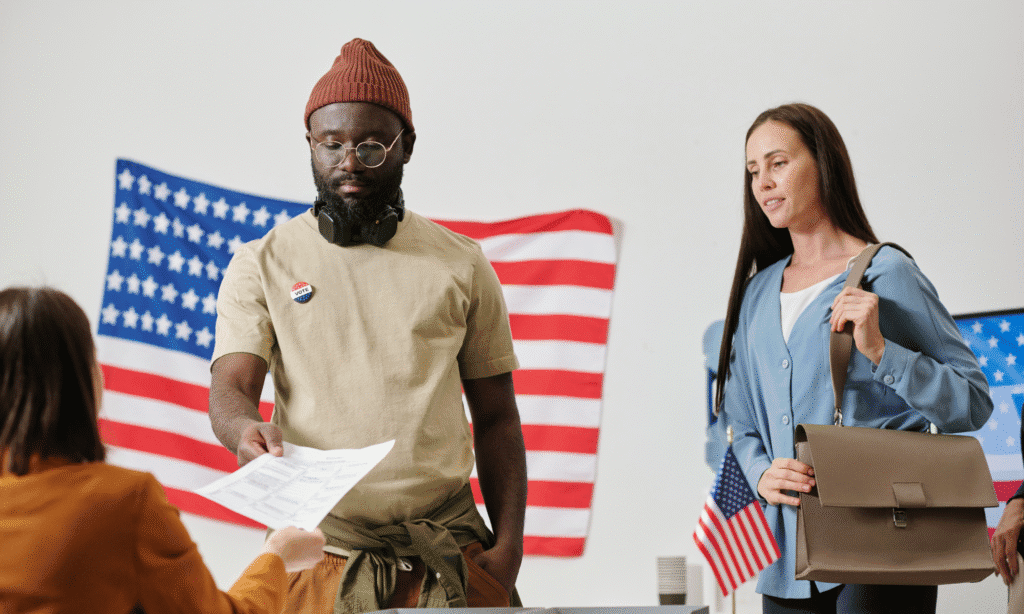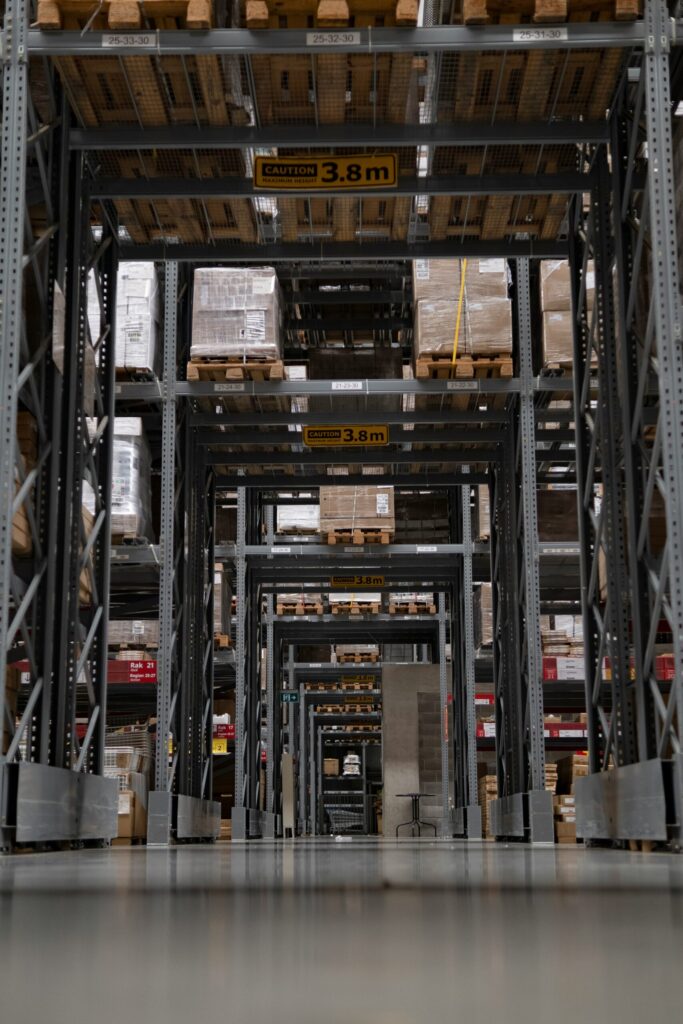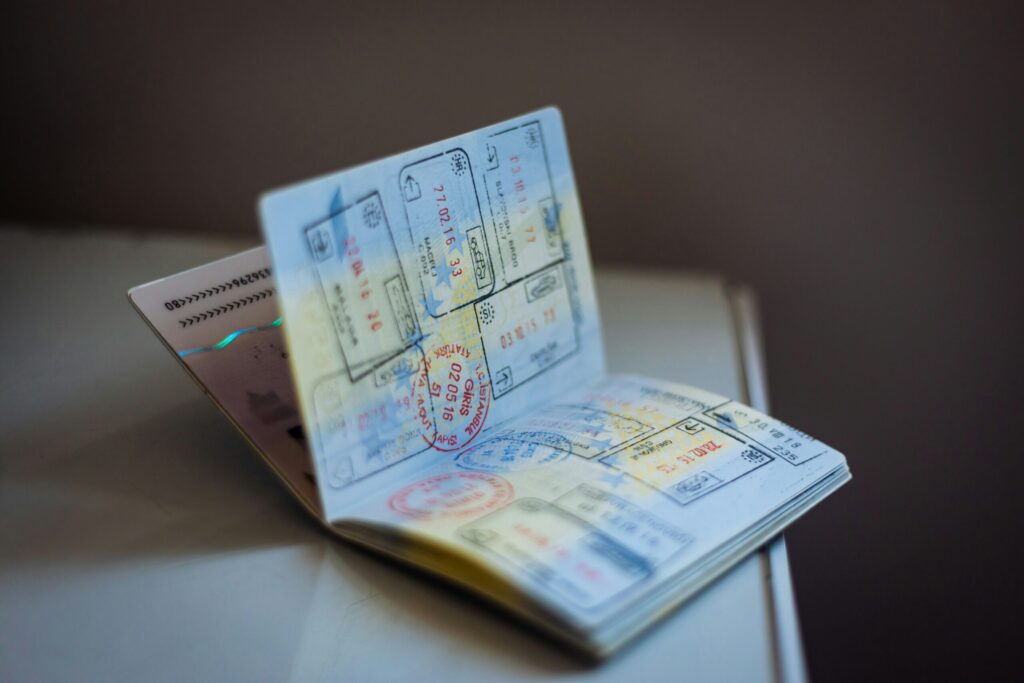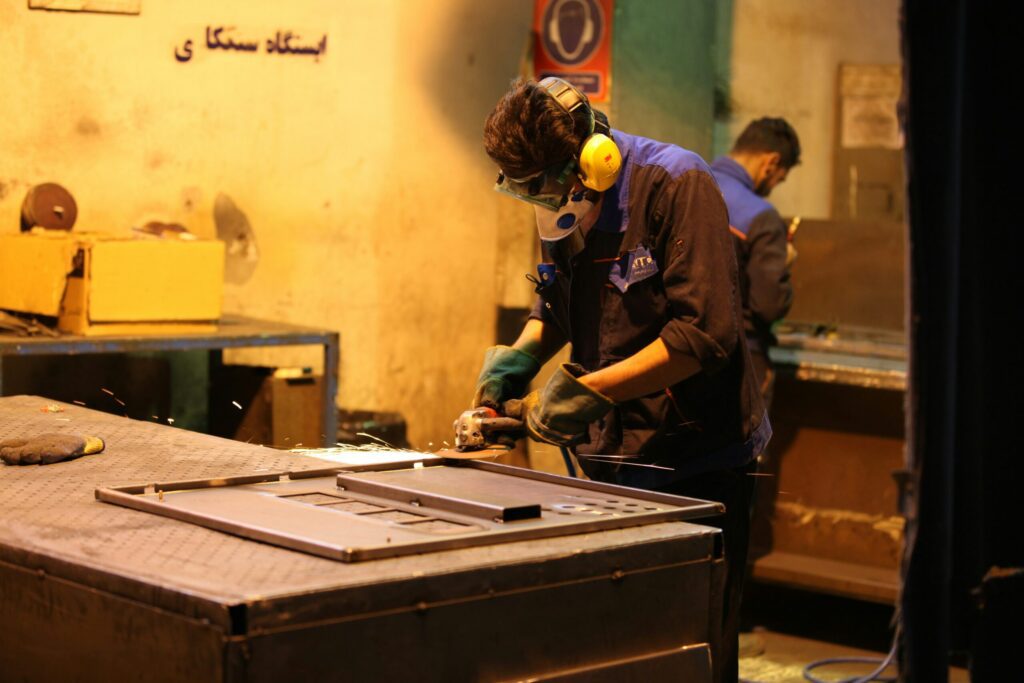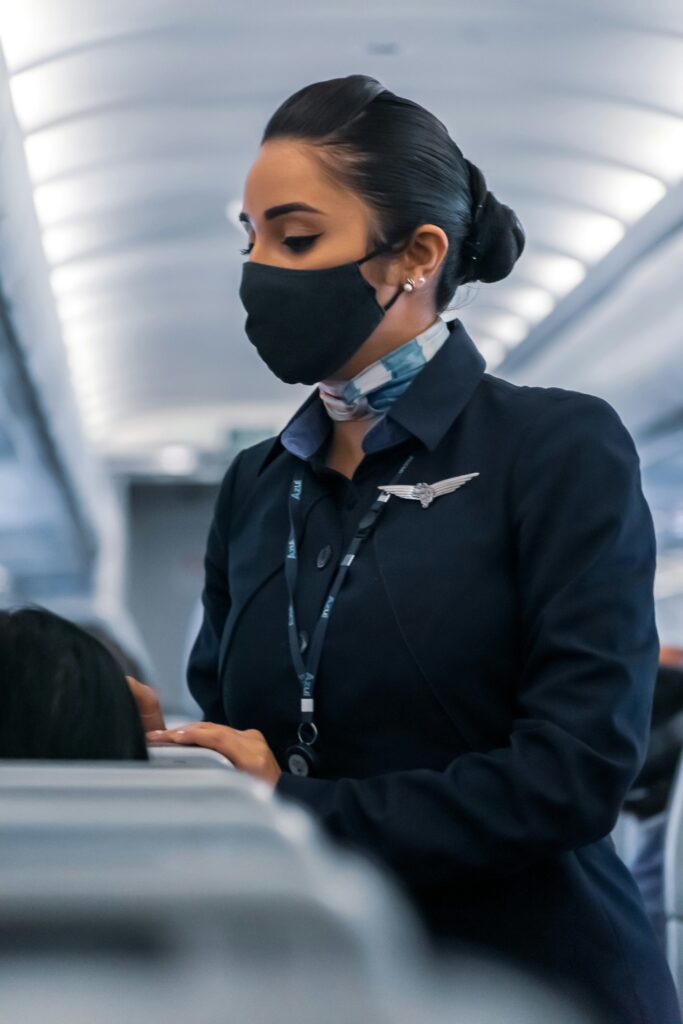
According to Indeed, a flight attendant works for private and commercial airline companies to keep passengers safe and comfortable. They help passengers get seated, demonstrate how to use the plane’s safety equipment, including seat belts, and provide snacks, beverages, and other services. Legally, all airlines require flight attendants on staff to ensure passengers’ safety.
What Do Flight Attendants Do?
An air steward, air stewardess, or air cabin crew are other names for flight attendants. Taking care of airline passengers’ health, safety, and well-being while they are on board the aircraft is a customer-facing position. During their shifts, flight attendants will mostly work on an aircraft, although they may also work at offices and airports, and they frequently spend the night in hotels. Pre and post-flight inspections, passenger greetings, document checks, luggage security, duty-free sales, food and drink service, safety demonstrations, and more are among the numerous duties they will perform. Ad hoc administrative tasks, including creating flight reports and keeping track of sold goods, may also be necessary for the position.
Providing excellent customer service and making sure that customers are comfortable and have a safe and enjoyable trip are the primary goals of a flight attendant. Additionally, they play a crucial part in handling any issues, passenger demands, and crises. In the end, the goal is to guarantee that each traveler has a satisfying flight and arrives at their destination without incident.
In addition to their coworkers, flight attendants will collaborate with pilots, in-flight managers, in-flight leads, other members of the air cabin crew, and support personnel. Additionally, they will communicate with travelers, ground crew, airport employees, hotel employees, and maybe emergency services.
Responsibilities of Flight Attendants
Ideally, flight attendants handle a wide range of responsibilities. Their responsibilities range from security and safety to customer support. Some detailed responsibilities of flight attendants include the following
-
Keeping track of duty-free sales and orders for food and beverages
Flight attendants have the responsibility of keeping track of food, drinks, and other orders by passengers. This enables boarding passengers to have a good customer experience through their flight.
-
Attending Pre-flight briefings
Before flights, there are pre-flight briefings by the airline. Flight attendants attend pre-flight briefings to learn about flight schedule, route, customers with special needs and others.
-
Ensuring Luggage is stored securely
As flight attendants, they ensure passengers luggages are securely stored in the overhead. This is to prevent items from falling out and the overhead being properly closed. They also ensure that the underseat luggages are properly arranged.
-
Administering first aid
When the need arise, flight attendants administer first aid to passengers. This happens when passengers have crisis due to a health condition. They manage the situation until landing of the aeroplane.
-
Handling passenger complaints
It is the responsibility of flight attendants to handle passenger complaints professionally. This is to ensure that passengers have a good travel experience.
-
Post-flight checking
Post flight checking are carried out by flight attendants to ensure that no luggages are left in the overhead. Also, this is to ensure that suspicious items or stowaways are reported to the airline.
-
Ensuring Passenger Compliance
Passenger compliance is important at different times of flight boarding. On instances, flight attendants ensure safety procedures by passengers. They also make sure that passengers provide their boarding passes and any other item needed.
Flight Reports
Writing flight reports is handled by flight attendants. Flight reports include incidents that take place during the flights.
Additionally, selling presents and duty-free goods while informing travelers about any limitations at their destination are handled by flight attendants. They are also responsible for making sure there are never any trip hazards and that the galleys are always clear. Other duties include assisting travelers with any questions and distributing travel declaration paperwork as needed.
Read also: Travel Nurse Jobs in Europe 2025
Working Hours for Flight Attendants
Working hours for flight attendants depend on the airline, the duration of the flights they work on (e.g., short, medium, or long haul). Another influence can be whether any issues emerge. A flight attendant may work 30 to 40 hours per week, but they may work more or less. Short-haul flights usually have more regular hours. A job as a flight attendant is not 9 to 5. People who are interested in pursuing this career must be willing to work unsociable hours, such as early mornings, evenings, nights, weekends, and bank holidays, because flights are open twenty-four hours a day, seven days a week. Additionally, it might call for people to labor on religious holidays and other important occasions.
To begin their workday, flight attendants must travel to the airport. They will continue to work on the flight until it reaches its destination. Once there, they might have to spend the night anywhere in the country or abroad, or they might have to wait for a flight to return. Flight delays or cancellations can occasionally occur, requiring longer workdays and working on days off. In the event of delays or cancellations, flight attendants are often compensated.
How Do You Become a Flight Attendant in the UK?
Becoming a flight attendant does not require a degree. Nonetheless, if a person chooses to attend college, they ought to select disciplines that are pertinent to their interests, such as languages, travel, leisure, and tourism. Each university will have different prerequisites for admission, therefore, people should check before applying. As an alternative, people could apply directly to airlines, complete an apprenticeship, or enroll in college or a private training facility to enter the flight attendant field. Volunteering and on-the-job training can also increase a person’s chances of success.
Private or College-based training
Taking a college course, such as the Level 2 Certificate or Diploma in Air Cabin Crew, can help people get into the position. Flight attendant and cabin crew courses are also available from private training companies. For a Level 2 course, students typically require two or more GCSEs at grades 9 through 3 (A* to D) or their equivalent.
People will still require a good secondary education, including GCSE English and maths, even if they choose not to attend college. It will also help to have foreign language credentials.
Success with classes and credentials is not a guarantee for individuals. However, it may provide them with an advantage when applying because it will show employers that they are interested in the position.
Apprenticeships
Becoming a flight attendant is possible through an apprenticeship, such as an advanced apprenticeship for cabin crew. Four or five GCSEs, in grades 9 through 4 (A* to C), including math and English, are typically required for success.
Instructional Programs
Experience and becoming qualified are not the end of learning. People can enter the field more easily, improve their employability, and get a competitive edge by taking pertinent training courses and earning extra certifications. Relevant training courses are available at numerous colleges and authorized private training providers. Important courses that can be helpful to flight attendants include customer support, COVID-19 awareness, fire safety, first aid, a second language, and time management.
If you’re just starting, it can be worthwhile to sign up for less expensive online courses to see if a career as a flight attendant interests you. In this manner, it will save a person a great deal of time, money, and difficulty if it isn’t. Knowledge and skills can advance in cabin crew training schools.
Reputable training programs can also be recommended by professional organizations, unions, and associations like the Association of Flight Attendants (AFA), the Professional Cabin Crew Council (PCCC), and the Cabin Crew Union (CCU)>. Additionally, some offer assistance and programs to help people become flight attendants and to help those who are already in the field advance their careers.
The kind of training needed will vary depending on what the business wants and the flight attendant field a person wishes to work. It is worthwhile to examine multiple job postings to determine the training required for particular positions and areas of expertise. Job openings can be on websites like Indeed, Glassdoor, LinkedIn, Cabin Crew International, Cabin Crew Wings Job Board, All Flying Jobs, Aviation Jobsearch, Airlines Careers, RAF Recruitment, and GOV.UK find a job service. Flight attendant positions may also be available via recruiting firms.
Direct Application to Flight Attendant Roles
People who want to work as flight attendants can apply directly to the airlines. There are numerous airlines to pick from, and each one will have unique entry requirements and application procedures that are on their career pages. Some airlines to check out include British Airways, easyJet, Ryanair and Virgin Atlantic.
Before applying, you can take interactive tests by some airlines to learn more about the position and determine if it’s right for you. Additionally, there are brief introductory courses that last one or two days and allow people to experience what it’s like to be a member of the cabin crew.
Work Experience as a Flight Attendant
It is important to have the appropriate character traits and abilities to work as a flight attendant. During the application and selection process, employers will review these. People can differentiate themselves from the competition by gaining work experience in a related field, such as travel, tourism and leisure, sales, and hospitality. Even taking community classes, like those in languages and customer service, might be beneficial.
Experience in the real world will always be an advantage. Additionally, volunteering can help people develop their knowledge and abilities. People could gain skills by volunteering in customer service and sales positions for nonprofit organizations and community initiatives.
Entry Requirements for Flight Attendants
- 18 years old, at the very least, while some airlines demand that passengers be 21.
- Get through a medical examination.
- Pass improved background checks that look at criminal records.
- A high degree of fitness.
- Able to swim 25 meters on their own.
- A current, unrestricted passport.
- High proficiency in both written and spoken English.
- Residing within a specific time frame or distance from their base, typically 90 minutes.
- A polished, well-groomed look.
- No body piercings or tattoos that are visible.
- A specific height, typically between 5’2″ (157 cm) and 6’2″ (188 cm), for accessing overhead lockers. A person’s weight and height should be in proportion.
- Good hearing and vision ( you can use glasses or contact lenses).
Other Important Requirements for Flight Attendant Jobs
Cabin Crew Attestation (CCA)
An individual must possess a current Cabin Crew Attestation (CCA) to work as a flight attendant on airplanes registered in the UK and Europe. Individuals who complete the initial training course and exam will get a certificate of professional competency.
Driving Skills
Unless they have access to dependable public transportation, the majority of flight attendants will have to drive to their selected base. They should therefore possess a complete driver’s license, ideally one that is point-free.
What is Work Like as a Flight Attendant?
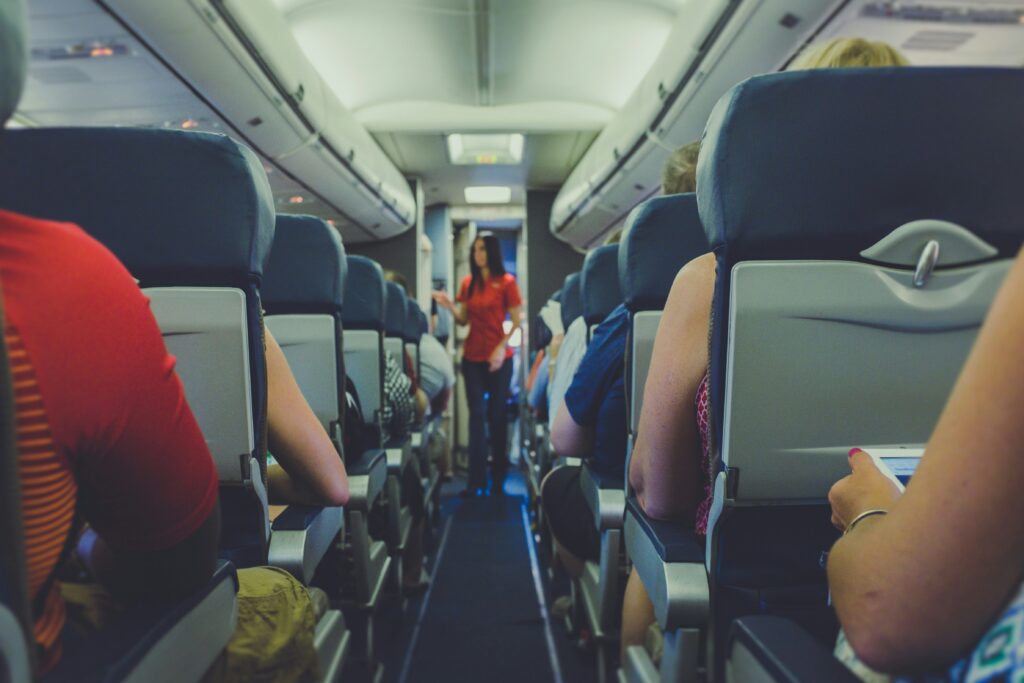
Standby Travel
The word “standby” is important to understanding flight attendants’ eligibility for complimentary trips. Flight attendants travel on a space-available basis, and airlines do not guarantee seats on flights they are not working on. This implies that flight attendants (and other airline staff) can travel for free or at a significantly reduced cost if there are any remaining seats after paying customers have boarded.</span>
Flying standby, though, is not always predictable. Flights may always be completely booked, particularly during the busiest travel times. Aircraft attendants must be adaptable and ready for the possibility that they won’t be allowed to board an aircraft, which can occasionally require them to wait hours or even days for a seat to become available.</span>
Discounts for Friends and Family
Being able to offer flight advantages to family members and even close friends is one of the most treasured rewards of working as a flight attendant. For flight attendants’ closest family members, which often consists of spouses, kids, and occasionally parents, several airlines provide free or heavily discounted travel choices. Airlines occasionally let flight attendants assign a few non-family members to receive these perks.</span>
These friends and family members travel standby, which means they do not have a guarantee of seats and must wait for open space on an aircraft, just like the flight attendants themselves. When applying these reductions, patience and adaptability are essential, but they can result in large savings.
Seniority Is Important
When it comes to standby travel, airlines use a seniority-based system. A senior flight attendant will have a higher chance of finding a seat on a busy aircraft since they get preference over less experience flight attendants. New flight attendants may find it challenging to take advantage of free flights due to this hierarchy, particularly on busy routes or on holidays.</span>
Due to the higher demand for long-haul flights, seniority is also important when flying internationally. Initially, new flight attendants might only be able to get seats on less well-traveled domestic routes. Their alternatives for free travel will increase as they become more senior.
Not Always for Recreation</h4>
Although it may seem like a dream come true to be able to fly for free, flight attendants typically utilize these perks for work-related reasons rather than luxuries. If they are based in a foreign place, many flight attendants take flights to visit relatives or commute to their hometowns. Additionally, some people utilize their flight privileges for business-related travel, such as shifting positions before shifts begin.
Flight attendants can preserve their personal and professional flexibility by taking advantage of free or discount flights. Standby travel is not always in use for last-minute getaways due to its unpredictability.</span>
How Much Does a Flight Attendant Earn in the UK?
The earnings for each flight attendant varies based of the year of experience ans position level. The airline also plays a role in how much income a flight attendant earns annually. However, according to Check A Salary, the average salary for a flight attendant in the UK is around £22,084 annually.
- Entry level (less than 1 year of experience) – £17,720 a year.
- Early career (1–4 years of experience) – £18,654 a year.
- Mid-career (5–9 years of experience) – £20,129 a year.
- Experienced (10–19 years of experience) – £24,391 a year.
- Late career (20 years and higher) – £29,243 a year.
